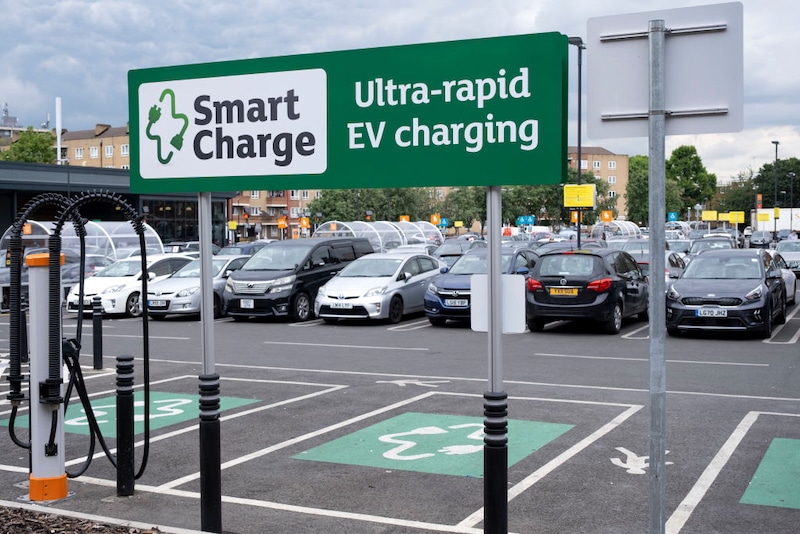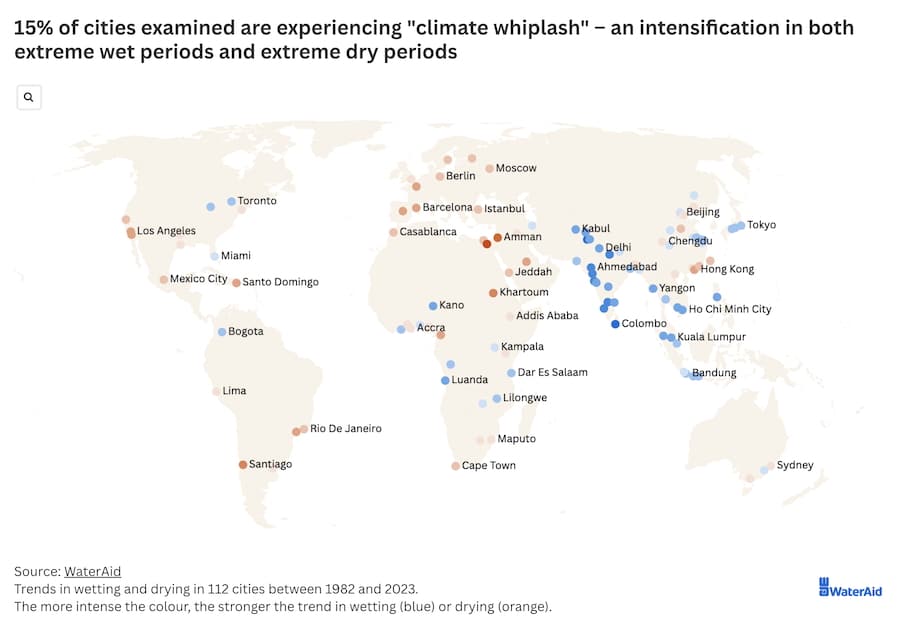
by Komoneed | Mar 15, 2025
According to a new analysis by Carbon Brief, the United Kingdom’s 2024 emissions fell to 409 million tons of carbon dioxide equivalent (MtCO2e), based on preliminary energy data. That’s a 3.6 percent drop and the lowest level since 1872. The country’s coal use was also the lowest it’s been since the mid-1600s. “The largest factor […]
The post UK Carbon Emissions Reach Lowest Level Since 1872 appeared first on EcoWatch.

by Komoneed | Mar 15, 2025
In a new report, researchers have ranked global cities for flood and drought risks and determined that some of the biggest cities in the world are facing dangerous climate swings between dry and wet periods. Some cities have seen a total change in their climate, moving from typically dry regions to regions prone to flooding […]
The post Dangerous Climate ‘Whiplash’ Is Impacting Cities Globally, Report Finds appeared first on EcoWatch.

by Komoneed | Mar 15, 2025
This post was originally published on We Build ValueL’articolo 8 Curiosities about the New Panama Canal: Sustainability and Innovation for the Global Supply Chain proviene da We Build...

by Komoneed | Mar 15, 2025
A sustainability expert illuminates a process that is finally taking off after years of behind-the-scenes work.
The post Inside BASF’s insetting project that cut agricultural emissions by 90 percent appeared first on Trellis.

by Komoneed | Mar 14, 2025
The striking two-seat EVs are lighter, quicker and less expensive than an Alpine A110 R





